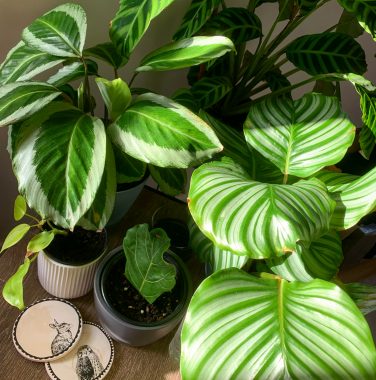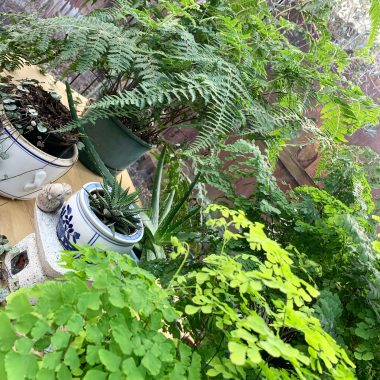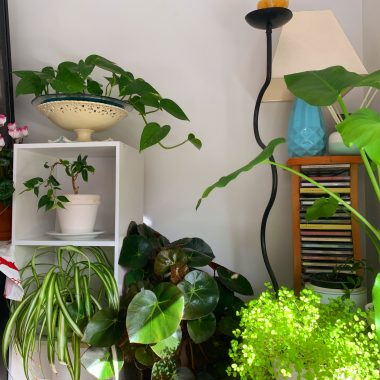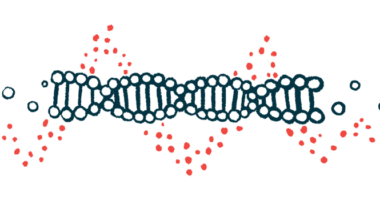Tending to Plants Offers Me Comfort as a Caregiver

I recently counted the number of plants in my house and came up with 45. I’ll admit I’ve gone slightly overboard, but in my defense, my passion began two years ago. When the pandemic hit here in New Zealand, many of us were forced to stay home. We took up new hobbies as a result.
Readers of my column will know that my husband, Aubrey, was diagnosed with hereditary ATTR amyloidosis in 2013. Coming to terms with the condition and accepting the changes it brings have taken a toll on Aubrey, our four children, and me, his caregiver.
Amyloidosis is a sinister disease, and my husband’s particular variant affects his nerves and his heart. Aubrey has severe cardiomyopathy and polyneuropathy, but his 2016 liver transplant and TTR treatment have thankfully slowed disease progression. Otherwise, I likely would have lost my husband years ago, as the life expectancy for someone with his condition is typically only a few years after diagnosis.
While we still face many demands and trials, our situation could be worse. Aubrey is still around, and sharing our lives provides me with a great deal of comfort. I can still do things with my husband, and our children can still learn from their dad.

My assortment of calatheas. (Photo by Jaime Christmas)
Cultivating life during challenging times
I believe that my passion for seeing my plants thrive stems from an innate need to experience favorable growth. My plants offer me pleasure and contentment. As caregivers to ill loved ones, it’s important to anchor ourselves to something that can keep us from drowning in our circumstances. Depression, anxiety, and burnout are common among caregivers, and if we aren’t mindful, they can lead to problems.

My outdoor ferns and succulents. (Photo by Jaime Christmas)
There are still days when I can sense a dark cloud coming to envelop me in woe and melancholy. I have learned not to fight the feelings, but to acknowledge them and pivot toward mechanisms that can pull me up and out. Calling a trustworthy friend, going for a run around the neighborhood, and gardening all benefit me. Ministering to my houseplants stills my thoughts and helps me to focus on what is essential. The ritual is calming and cathartic.
After nine years, I’ve become matter-of-fact and almost clinical in my caregiving. I can’t let in personal emotions because it would hurt too much to watch Aubrey experience untold pain.
My plants keep me tender and kind. When I wipe down every single leaf on my ficus, I learn patience and tolerance. When I carefully trim the wilted shoots off my calatheas, I embrace tranquillity, and when I gently separate my tradescantia to propagate, I celebrate life.

More samples of my houseplants, featuring a begonia, a spider plant, a weeping fig, and a philodendron. (Photo by Jaime Christmas)
As English poet Alfred Austin once said, “The glory of gardening: hands in the dirt, head in the sun, heart with nature. To nurture a garden is to feed not just the body, but the soul.”
Note: FAP News Today is strictly a news and information website about the disease. It does not provide medical advice, diagnosis, or treatment. This content is not intended to be a substitute for professional medical advice, diagnosis, or treatment. Always seek the advice of your physician or other qualified health provider with any questions you may have regarding a medical condition. Never disregard professional medical advice or delay in seeking it because of something you have read on this website. The opinions expressed in this column are not those of FAP News Today or its parent company, Bionews, and are intended to spark discussion about issues pertaining to familial amyloid polyneuropathy.








Leave a comment
Fill in the required fields to post. Your email address will not be published.